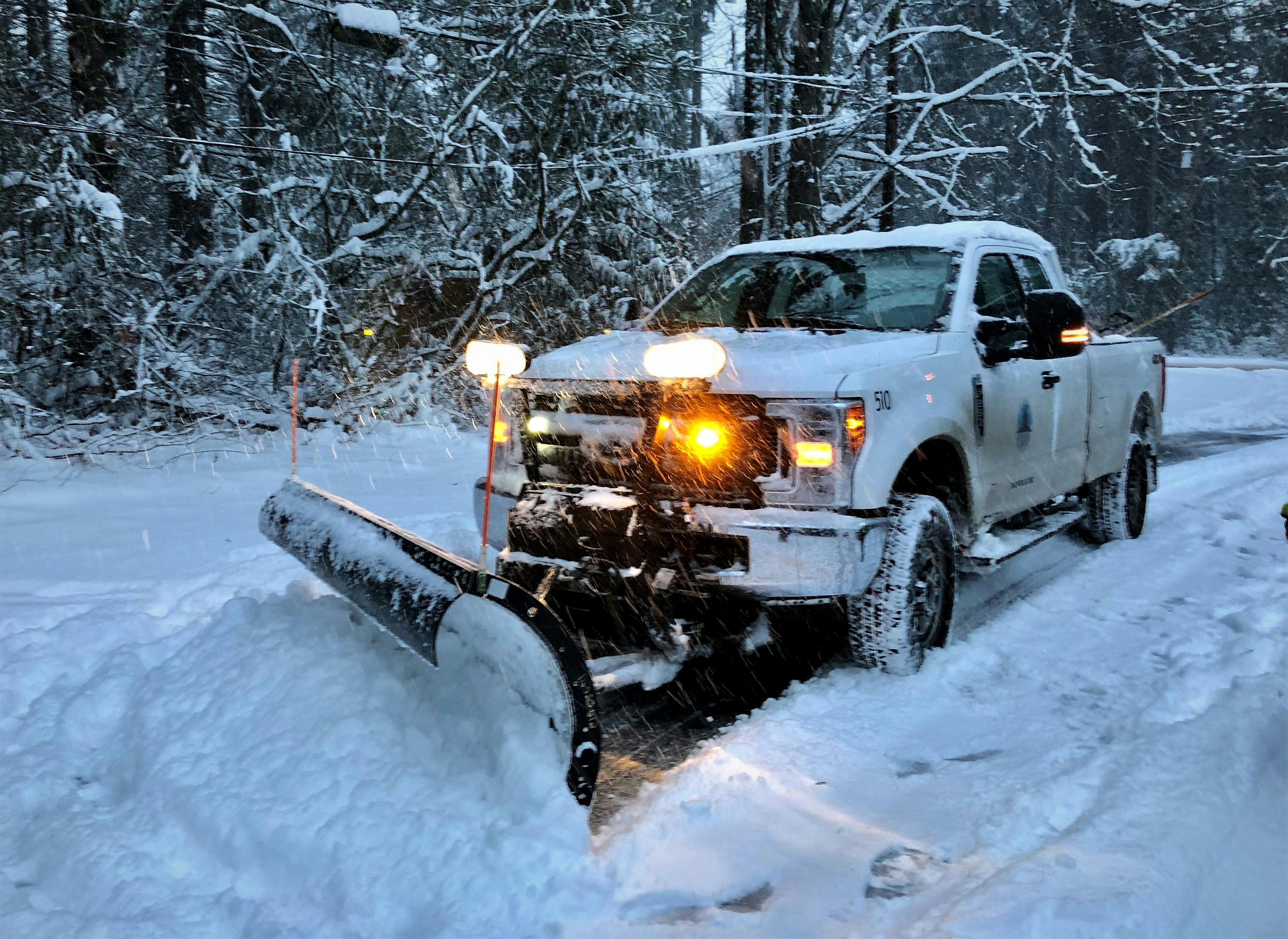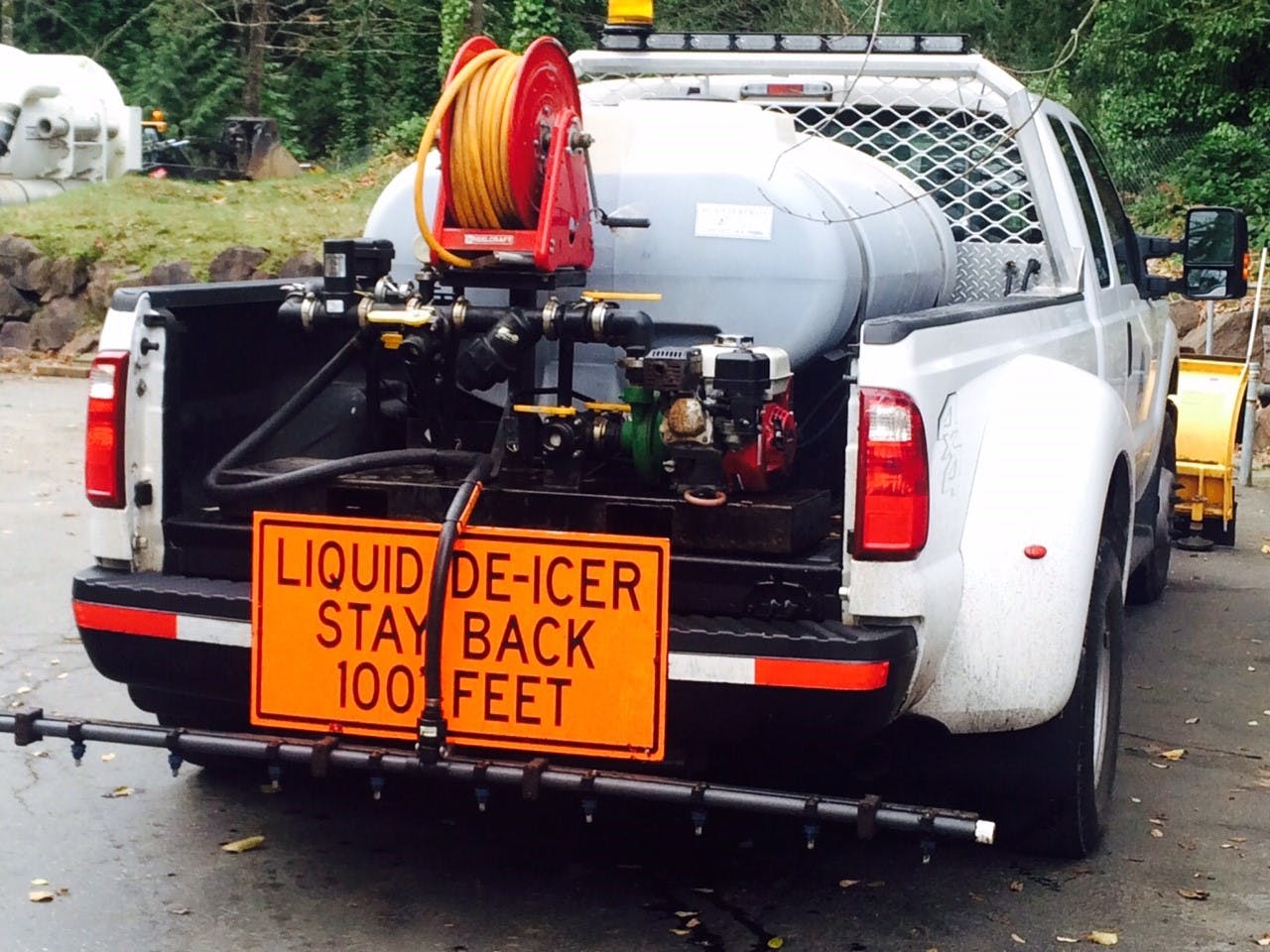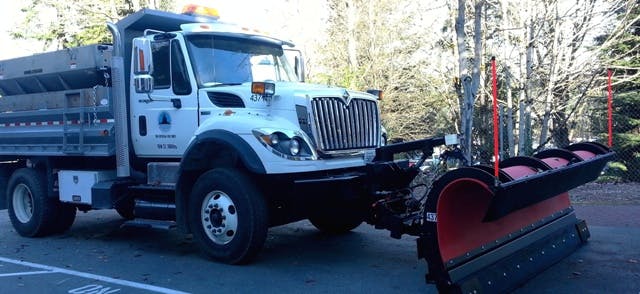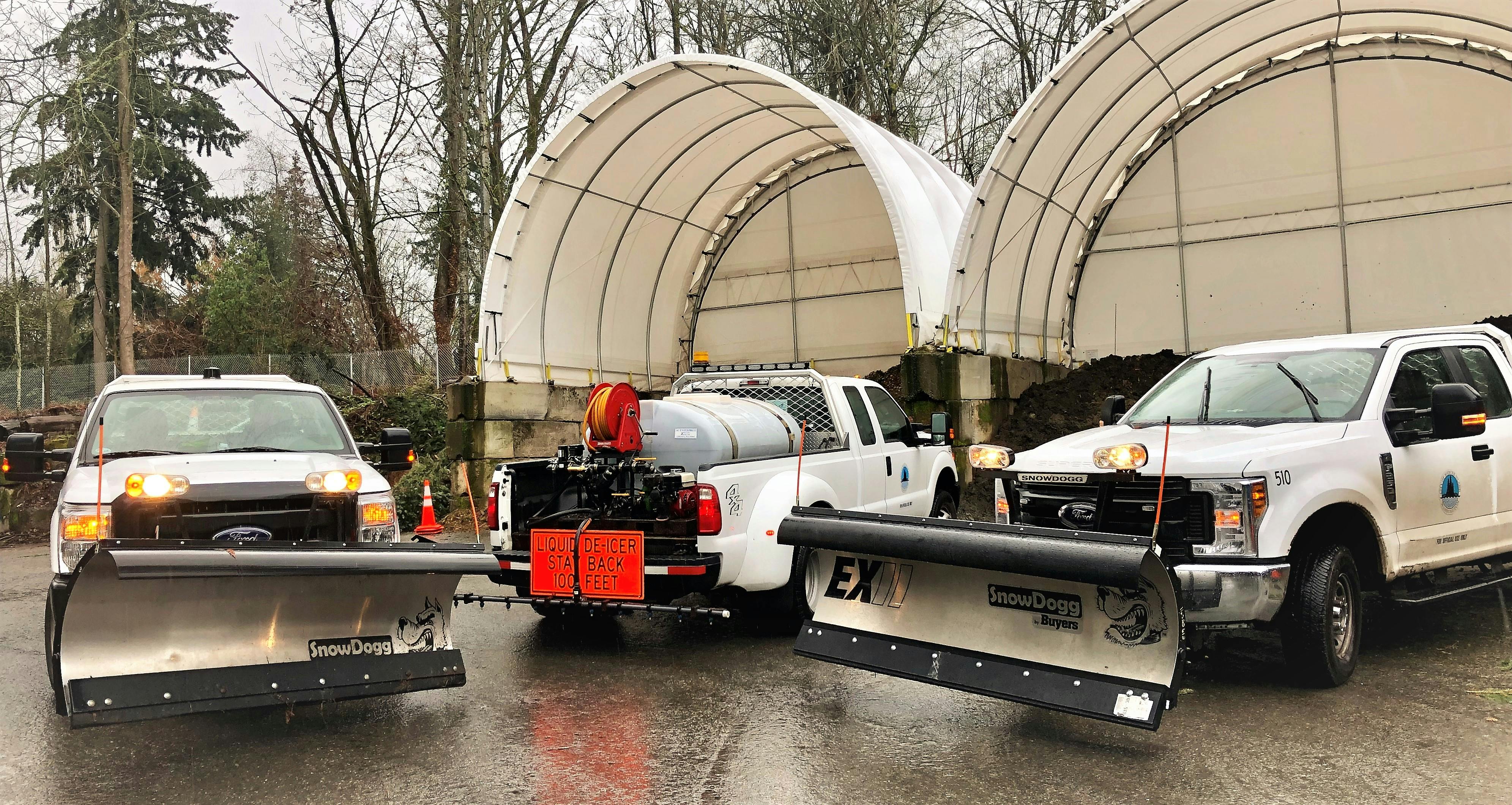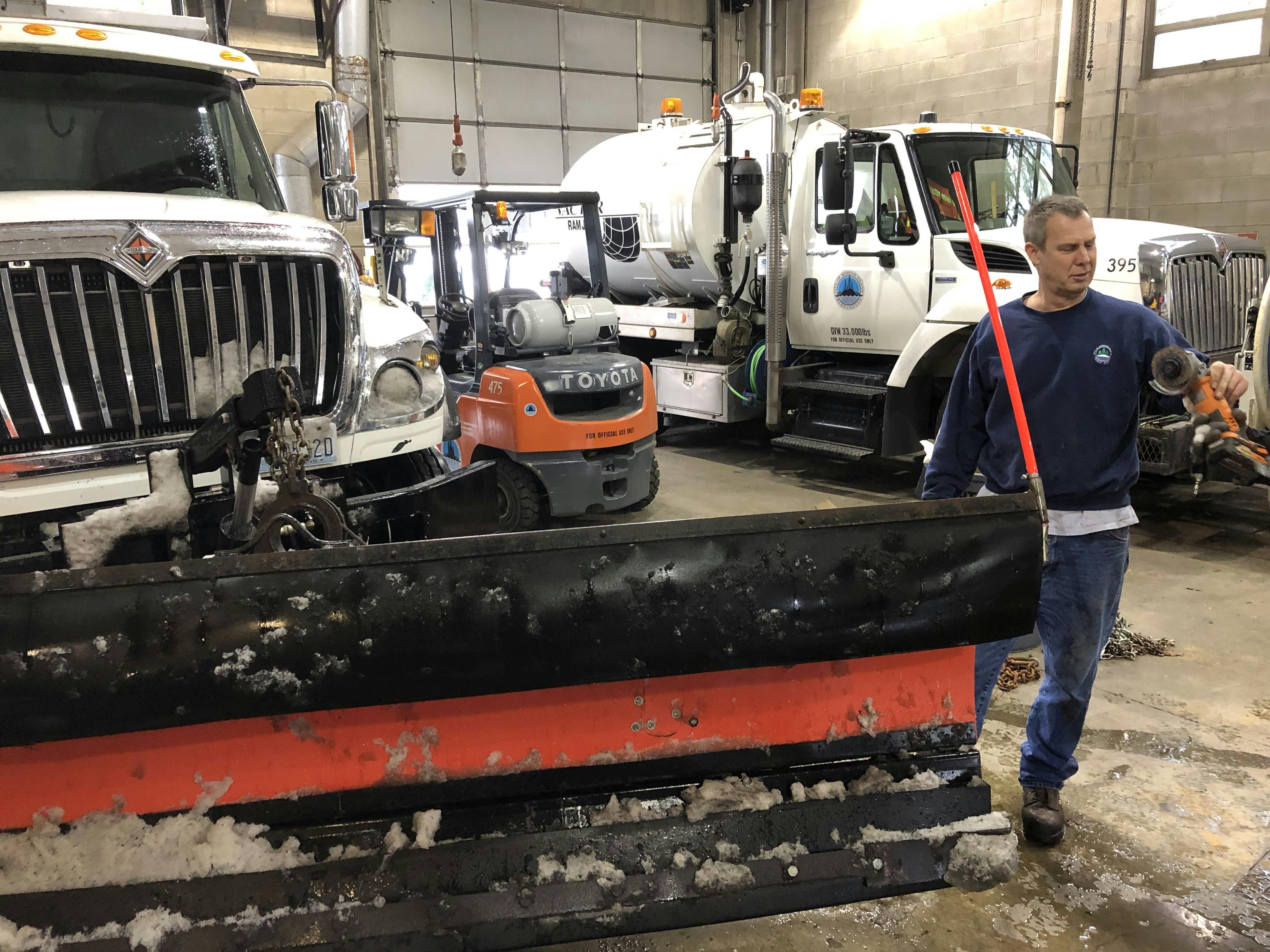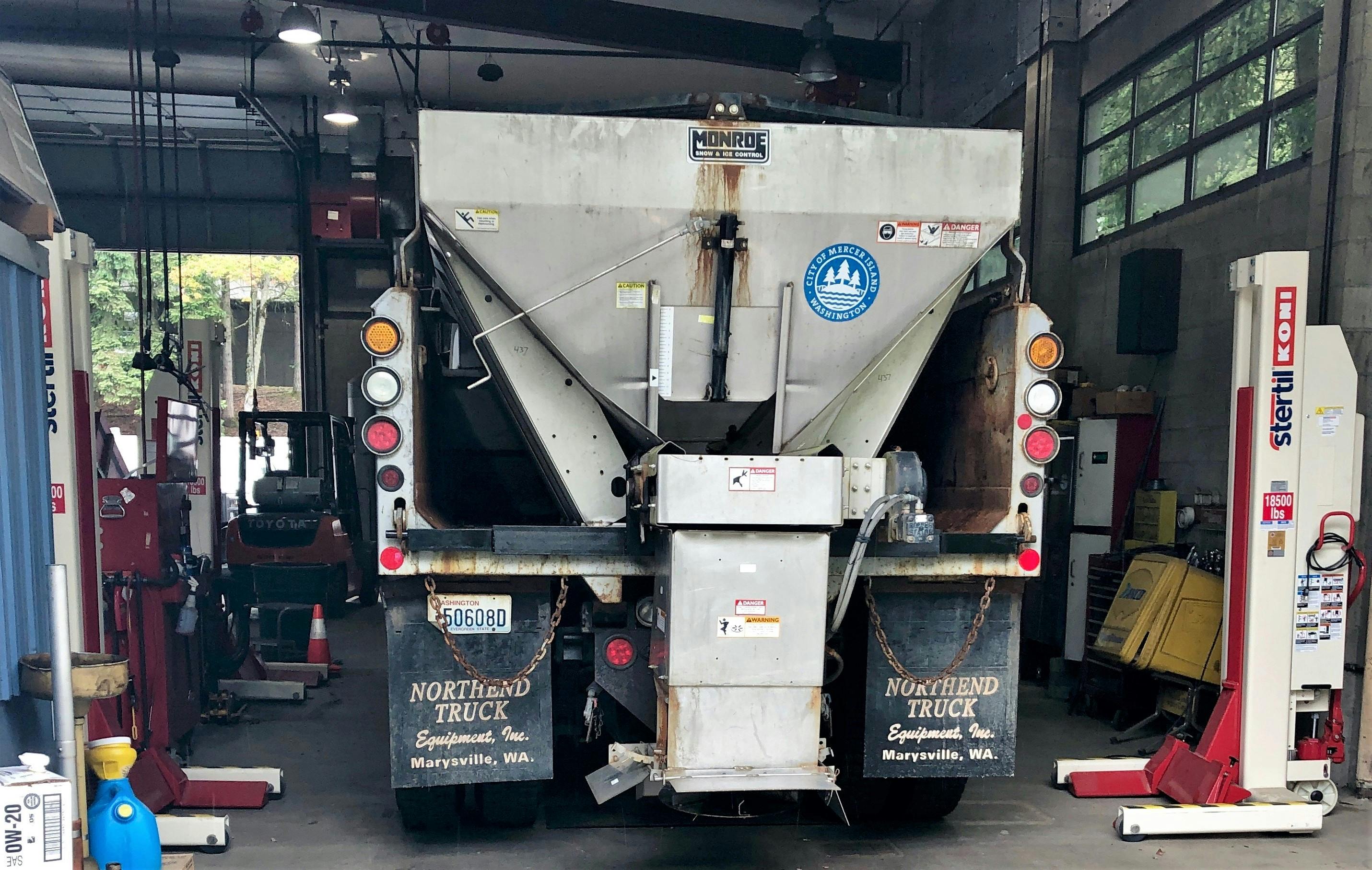Winter Storm Ready

Weather in the Pacific Northwest can be tricky to navigate. That "mostly sunny" winter day can easily turn into a downpour, or even a slushy snowstorm with short notice, which is why we've created this Winter Storm Ready information page. The City has consolidated the information residents, business owners, and visitors need to safely navigate Mercer Island throughout winter storm season.
Report Issues to the City
You can easily report things needing the City’s attention online. If you spot clogged stormwater drains, downed trees, icy roads, or anything else, let City Staff know using MI-Connect. This tool allows residentsContinue reading

Weather in the Pacific Northwest can be tricky to navigate. That "mostly sunny" winter day can easily turn into a downpour, or even a slushy snowstorm with short notice, which is why we've created this Winter Storm Ready information page. The City has consolidated the information residents, business owners, and visitors need to safely navigate Mercer Island throughout winter storm season.
You can easily report things needing the City’s attention online. If you spot clogged stormwater drains, downed trees, icy roads, or anything else, let City Staff know using MI-Connect. This tool allows residents to report and track non-emergency issues through the City’s website or by using a smartphone app.
Please call Puget Sound Energy (PSE) at 1-888-225-5773 to report outages and learn about service restoration or view PSE's outage map with estimated power restoration times at www.pse.com/outage/outage-map. For more information, see Power Outages. |
Excessive Rain and Increased Landslide Risk Landslides develop during intense rainfall, runoff, or rapid snowmelt. Mercer Island sees about 5-15 slides each year. To report a non-life-threatening landslide, call our non-emergency 24-hour dispatch center (425) 577-5656. In the case of an emergency call 9-1-1. Visit Landslide Safety for more information. |
The City provides sanding, plowing, and de-icing services on public streets, in order of priority (private streets are not maintained or plowed by the City). Crews also may apply a pre-treatment of liquid deicer (see map) to arterials located on steep hills and major intersections. Click here for information on the City's Snow and Ice Response Plan. |
Your Resource for Up-to-Date Information and Safety Tips
During a major winter weather event, this page will be updated regularly with road closures/openings, safety tips, and more.
-
February 4, 2025 Update
Share February 4, 2025 Update on Facebook Share February 4, 2025 Update on Twitter Share February 4, 2025 Update on Linkedin Email February 4, 2025 Update linkAll roads are open. City crews have been applying de-icer to hills and areas prone to ice.
Temperatures are hovering just below the freezing mark this morning. If it looks wet, the pavement could be icy. Take care as you walk and drive.
Mercer Island School District is on 2-hour delay. Please see the school website for full details.
Mercer Island Community and Event Center (MICEC) is operating on normal hours.
-
February 3, 2025 Update
Share February 3, 2025 Update on Facebook Share February 3, 2025 Update on Twitter Share February 3, 2025 Update on Linkedin Email February 3, 2025 Update linkAll roads are open.
Mercer Island School District is on 2-hour delay. Please see the school website for full details.
Mercer Island Community and Event Center (MICEC) is operating on normal hours.
-
Snow and Ice Response Plan
Share Snow and Ice Response Plan on Facebook Share Snow and Ice Response Plan on Twitter Share Snow and Ice Response Plan on Linkedin Email Snow and Ice Response Plan linkUpdated January 2024
The City provides sanding, plowing, and de-icing services on public streets that allow traffic to enter and leave the Island safely when winter weather brings snow and ice.
The City has six plows, three of which have sander units; one truck is used mostly for liquid de-icing.
The top priority is the primary routes that access I-90, schools and the Town Center, and other important arterials. This includes arterials such as Island Crest Way, Gallagher Hill Road, East Mercer Way, West Mercer Way, North Mercer Way, Mercerwood Drive, SE 40th Street, SE 53rd Place, SE 68th Street, 70th Ave SE, and 72nd Ave SE.
In addition to plowing and sanding, crews also apply a pre-treatment of liquid deicer to other arterials located on steep hills and major intersections; this can help prevent minor ice build-up and makes treated streets easier to plow. See Deicing Pre-Treatment Locations Map for more information.
When arterials are safe to travel, crews begin working next on residential streets. Crews also respond to snow and ice situations at the request of Mercer Island Police. Unfortunately, the City does not have the personnel or equipment to clear residential neighborhoods until the main arterials are clear and passable, and must prioritize time and resources.
During major snowstorm events, crews will be focused solely on snow removal for priority routes.
Click on the links below to see the latest maps:
- Snow Removal Priority Streets Map
- Deicing Pre-Treatment Locations Map
- Likely Street Closures Due to Weather Map
- Privately Maintained Roadways Map (i.e. maintenance is responsibility of homeowners, not the City)
To report a snow problem, or request sanding/deicing after a storm, please use the City's online service request portal MI-Connect (or download the app). This pushes requests directly into the workflow queue for City field crews.
-
Are You Ready for Winter Driving?
Share Are You Ready for Winter Driving? on Facebook Share Are You Ready for Winter Driving? on Twitter Share Are You Ready for Winter Driving? on Linkedin Email Are You Ready for Winter Driving? linkWinter driving conditions have arrived and now is a good time to make sure you are prepared!
Whether you are headed to the mountains for some snow-fun or over the mountains to see loved ones, we want to make sure you are ready for the conditions. Follow these tips and tricks to stay safe on the road this winter.
Winterize Your VehicleRegularly check the wipers, tires, lights, and fluid levels (radiator, windshield washer, power steering, oil and brakes). Make sure brakes and transmission are working properly. Your vehicle should also be equipped with a winter emergency kit. The following items are recommended:- Ice scraper, snow brush, rags and paper towels.
- Jumper cables, basic tool kit, antifreeze, and no-freeze windshield washer fluid.
- Shovel, mats or old rugs for traction, tire chains, salt, sand or kitty litter.
- Blankets or sleeping bag and extra clothing (e.g. hats, socks, waterproof boots, coat and gloves).
- Non-perishable, high calorie food.
- Candles, waterproof matches and metal container such as a coffee can for melting snow.
- Flashlight and extra batteries, flares or roadway reflectors.
- Basic first aid kits and fire extinguisher.
Winter driving is often the most difficult driving due to blowing snow, icy slick spots, and fewer daylight hours. When you are on the road you should:- Know before you go! Check out the forecast and WSDOT road status before you hit the road.
- Wear your seat belt.
- Be prepared to turn back or seek shelter if conditions become bad.
- Keep your windows clear of snow and ice. Do not start off until your windshield is defrosted.
- DRIVE SLOWER and increase your following distance. Do not use cruise control.
- Roadway conditions may vary widely due to sun, shade, or roadway surface. Watch for slick spots especially on bridges, overpasses, and shaded spots.
- If the pavement is snow or ice covered, start slowly and brake gently. Begin braking early when you come to an intersection.
- Be careful after a minor accident. If you do not feel comfortable exiting your vehicle, motion the other driver and drive to the nearest police station, 24-hour store, service station, hospital, or fire station.
Stuck or StrandedIf your vehicle breaks down, pull as far off the road as possible. Your greatest personal danger at this point is that of being hit by a passing vehicle. Don't panic. Do not over-exert yourself, especially when shoveling snow or pushing a stalled or stuck vehicle.
If you are stranded on a well traveled road, wait for assistance from police or other emergency service providers. Raise the hood, turn on the dome light and flashers to make your vehicle more noticeable and attach a cloth to the antenna or windows.
Other drivers who see stranded motorists can do them a favor by using a cellphone to call and report the exact location and description of the vehicle.Back Home
When you return home from a winter trip, wash your vehicle to remove dirt and road salt. A coat of wax will help protect the finish from the effects of salt. Lubricate door and trunk locks to prevent them from freezing.
Winter Weather on Mercer Island
When ice, snow or freezing fog is expected in Mercer Island, City crews head out and pre-treat known trouble spots on roads and sidewalks with de-icer, which can help prevent slippery conditions.
During snow cycles, City plow trucks clear and sand arterials, critical intersections, and major access routes on and off the Island, followed by secondary and residential streets when time permits.
All residents can help the City keep roadways clear and prevent accidents:
- Please give snowplow drivers plenty of space and park well away from the road edge
- Drive cautiously (slow, steady, headlights on, cruise control off, plan well ahead)
- Consult the City's plowing, sanding, and deicing pages for more information
The City does NOT plow private roads. Find out if you live on one here. -
Snow Plow Safety
Share Snow Plow Safety on Facebook Share Snow Plow Safety on Twitter Share Snow Plow Safety on Linkedin Email Snow Plow Safety linkWinter driving conditions can vary from day to day. Be prepared at all times, by knowing the road conditions and having an alternate route planned.
When you approach a snowplow from behind, pass with care.
Only pass when you can see the road ahead.
You should not try and pass in blowing snow.
Allow more distance between you and the plow, they may be spreading sand or chemicals.
Slow down and approach with caution. A snowplow may be clearing snow in that lane or preparing to turn around.





